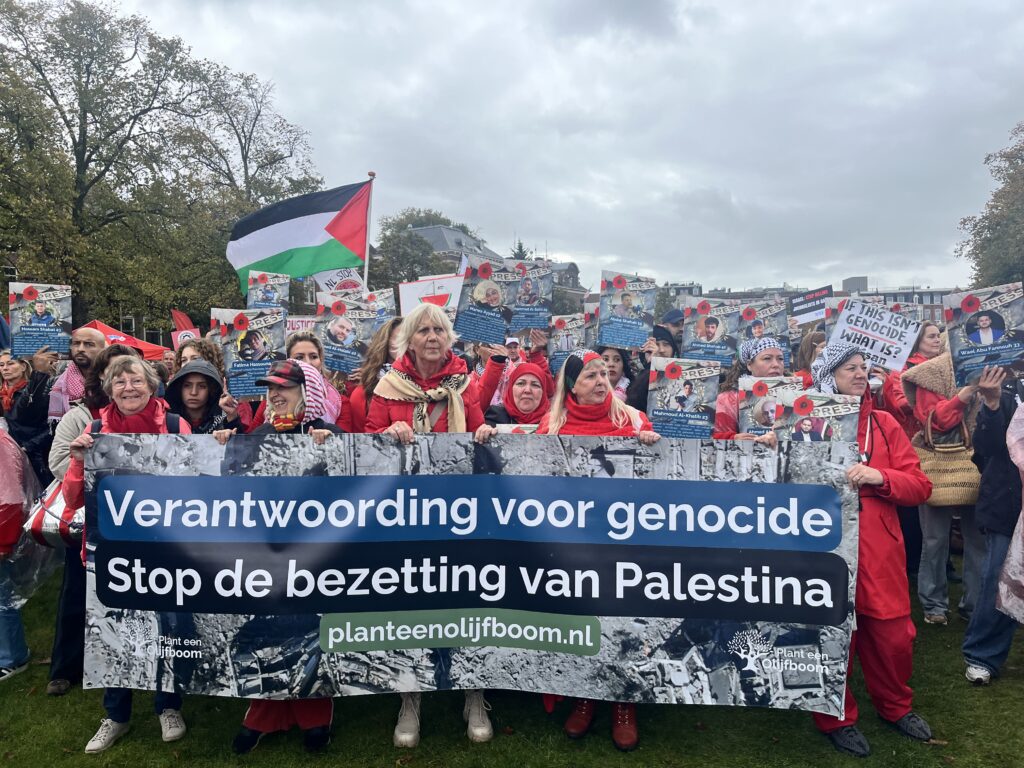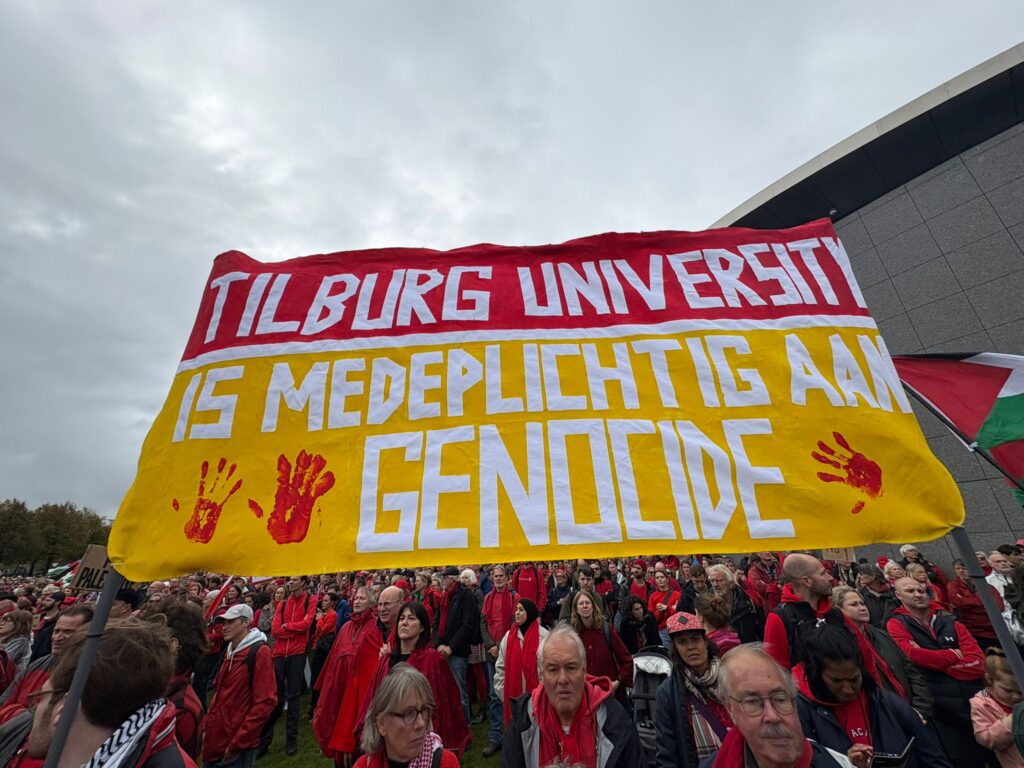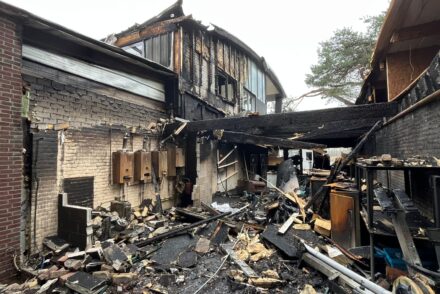Red line of protest through Amsterdam: ‘Powerful signal to politicians in The Hague’
Red scarves, hats, and raincoats colored the streets of Amsterdam during the Red Line demonstration, a protest against the violence in Gaza. But what does such a massive demonstration really accomplish? Univers spoke with political sociologist Ruud Wouters and the demonstrators present.

‘A demonstration of 250,000 people is impressive,’ says political sociologist Ruud Wouters, affiliated with the Tilburg School of Social and Behavioral Sciences. ‘That’s a significant portion of the population. In the Netherlands, that’s equivalent to about four seats in the House of Representatives. And then you know: this is just the tip of the iceberg. There’s a much larger group of people who support the message but couldn’t be there.’
Yesterday afternoon, the protest became visible in the streets of Amsterdam. Palestinian flags flew in the crowd, and demonstrators held up signs with slogans like ‘End the genocide,’ ‘I hate large crowds, but I hate genocide more,’ and ‘I used to love Dick, but Schoof changed my mind.’
It was the third, and according to the organizers, also the largest Red Line protest to date. At least 250,000 people attended, more than the 150,000 and 100,000 who attended previous editions in The Hague.
We felt the calling to come
For Dirk van Son, a Tilburg University alumnus, it was his first demonstration. ‘I feel very strongly that the great injustice done to innocent people in Gaza is not sufficiently recognized by our government. We felt called to come,’ he tells Univers.
Van Son calls the demonstration impressive. ‘There was a real sense that this has to happen now. What struck me most was how widely this sentiment was shared in the streets of Amsterdam: hundreds of people hung flags from their windows and banged on pots and pans along the route.’
Cutting ties
Rayan Fransawi, a Human Resource Studies student at Tilburg University, emphasizes the broad turnout: ‘It was impressive to see how children, parents, and seniors came together, united by a single goal.’ He adds that his participation was also a statement to Tilburg University: ‘We want our university to be on the right side of history and sever all ties with Israel.’
‘In light of the recent discrimination at Tilburg University, I felt it was even more important to exercise my right to freedom of expression,’ adds Panka Toma, party leader of the Progressive Student Alliance (PSA) student faction. ‘It’s now clear to everyone that this isn’t a ‘conflict’: we are witnessing genocide.’

Impact
Political sociologist Ruud Wouters sees the massive turnout for the Red Line protest as a powerful social signal. ‘The Netherlands is anything but ‘demonstration fatigue.’ From the first to the third edition, the number of participants grew from 100,000 to 250,000. The situation in Gaza continues to affect people.’
According to Wouters, large demonstrations are most impactful when they coincide with important political moments, such as elections. ‘The stronger the public opinion, the greater the pressure on politicians. They have to ask themselves: what does our electorate think? Should we say something about this or not?’
‘In Belgium, we saw that the government ultimately had to take positions on Gaza, partly due to public pressure and protests.’ Concretely, this led to the unofficial recognition of Palestinian statehood and the imposition of sanctions against Israel.
Growing pressure
That pressure now appears to be having an effect in the Netherlands as well. Last week, the caretaker government decided to bring several seriously ill children from Gaza to the Netherlands. Similar motions on this topic were previously rejected because parties like the PVV, VVD and BBB voted against them.
Wouters places this shift in a strategic perspective: ‘Parties want to gain power by rallying voters behind them. They emphasize issues that strengthen their electoral position and adjust their positions when public opinion demands it. Those who jump on the bandwagon too late are displaying opportunistic behavior, and that determines their credibility, especially with elections approaching.’
However, he warns that political attention can be fleeting. ‘Should something else happen now – a terrorist attack or a sudden economic crisis – such a new issue could suddenly rise to the top of the agenda for voters and politicians. Political parties are constantly adjusting their priorities to what is most relevant to their supporters at any given moment.’







